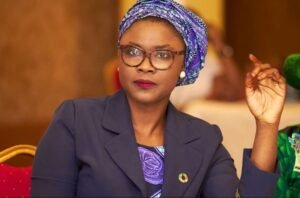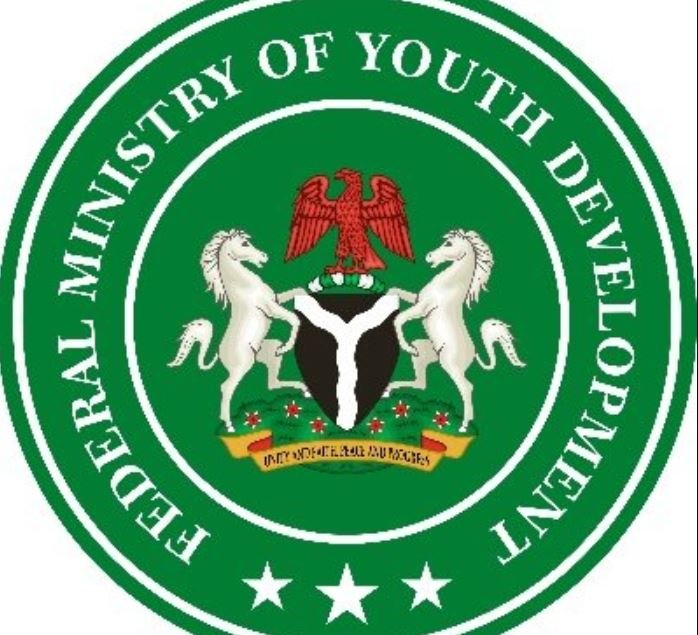The Federal Ministry of Youth Development in Nigeria is a government agency that oversees the development and well-being of the country’s youth.
Its functions include formulating policies, implementing programs, and supporting youth-related initiatives. This includes education, employment, entrepreneurship, and community engagement.
The ministry aims to empower Nigerian youth, help them reach their full potential, and contribute meaningfully to the nation’s development.
READ ALSO: List Of Ministers Of Water Resources And Sanitation In Nigeria (1999-Present)
List Of Ministers Of Youth Development In Nigeria
Name | Term Start | Term End | Party |
|---|---|---|---|
Akinlabi Olusunkanmi | 2007 | 2010 | PDP |
Bolaji Abdullahi | 2010 | 2012 | PDP |
Inuwa Abdulkadir | 2012 | 2013 | PDP |
Boni Haruna | 2014 | 2015 | PDP |
Solomon Dalung | 2015 | 2019 | APC |
Sunday Dare | 2019 | 2023 | APC |
Jamila Bio Ibrahim | 2023 | Present | APC |
Agencies And Departments Under The Ministry Of Youth Development In Nigeria
- National Youth Service Corps (NYSC)
- Citizenship and Leadership Training Center (CLTC)
- Education & Youth Development (EYD)
- Enterprise Development and Promotion (EDP)
- Network & Social Mobilisation (NSM)
Key Initiatives From The Ministry Of Youth Development In Nigeria
- NYIF
- NYSC Reforms
- NYSP
- NEXTGEN Bank
- Young Leaders’ Institute
- 30% Youth Quota
READ ALSO: Complete List Of Ministers Of State For Police Affairs In Nigeria (2023-Present)
Who Is The New Minister Of Youth Development In Nigeria?

Jamila Bio Ibrahim is the new Minister of Youth Development in Nigeria. She took on this role in October 2023, after being appointed by President Bola Tinubu.
Before she became the Minister of Youth, Jamila was already active in Nigerian politics and development work. Her career is a mix of leadership, medical expertise, and a passion for youth development. Jamila is not new to leadership roles.
She has served as the president of the Progressive Young Women Forum (PYWF), where she focused on encouraging young women to participate in politics and leadership positions.
This experience helped her understand the needs and challenges of young people, especially women. She also worked as a Senior Special Assistant to the Governor of Kwara State, focusing on Sustainable Development Goals (SDGs).
In this role, she worked on different projects that addressed education, health, and economic opportunities for people in the state.
She graduated from the University of Ilorin with a degree in medicine in 2010. Later, she went on to study health management and leadership at the University of Washington in 2017.
Jamila Bio Ibrahim comes from a family with political ties. Her father, Ibrahim Bio, served as a Minister of Transportation and also worked with the National Sports Commission under the administrations of former Presidents Umaru Musa Yar’Adua and Goodluck Jonathan.
One of the key projects Jamila announced shortly after taking office was the allocation of N110 billion to support the Nigeria Youth Investment Fund.
This fund is designed to help young entrepreneurs in Nigeria by providing them with loans and other support services.
READ ALSO: List Of Ministers Of Special Duties And Inter-Governmental Affairs In Nigeria
This is a big step in helping Nigeria’s youth, especially those who are starting businesses or in the early stages of growing their companies.
Jamila’s leadership and work have been recognized both locally and internationally. She founded the Yon Seno Foundation, an NGO that focuses on health and development.
In addition, she is part of different committees, including the Presidential Committee on the North-East Initiative under President Muhammadu Buhari.
Her involvement in these initiatives shows her commitment to improving the lives of Nigerians, particularly the youth.
Jamila Bio Ibrahim’s role as the minister of youth development In Nigeria is to ensure that young people in Nigeria have access to opportunities in education, employment, and entrepreneurship.
Her vision is to empower young Nigerians to take charge of their future, contribute to the nation’s development, and become leaders in their communities.

